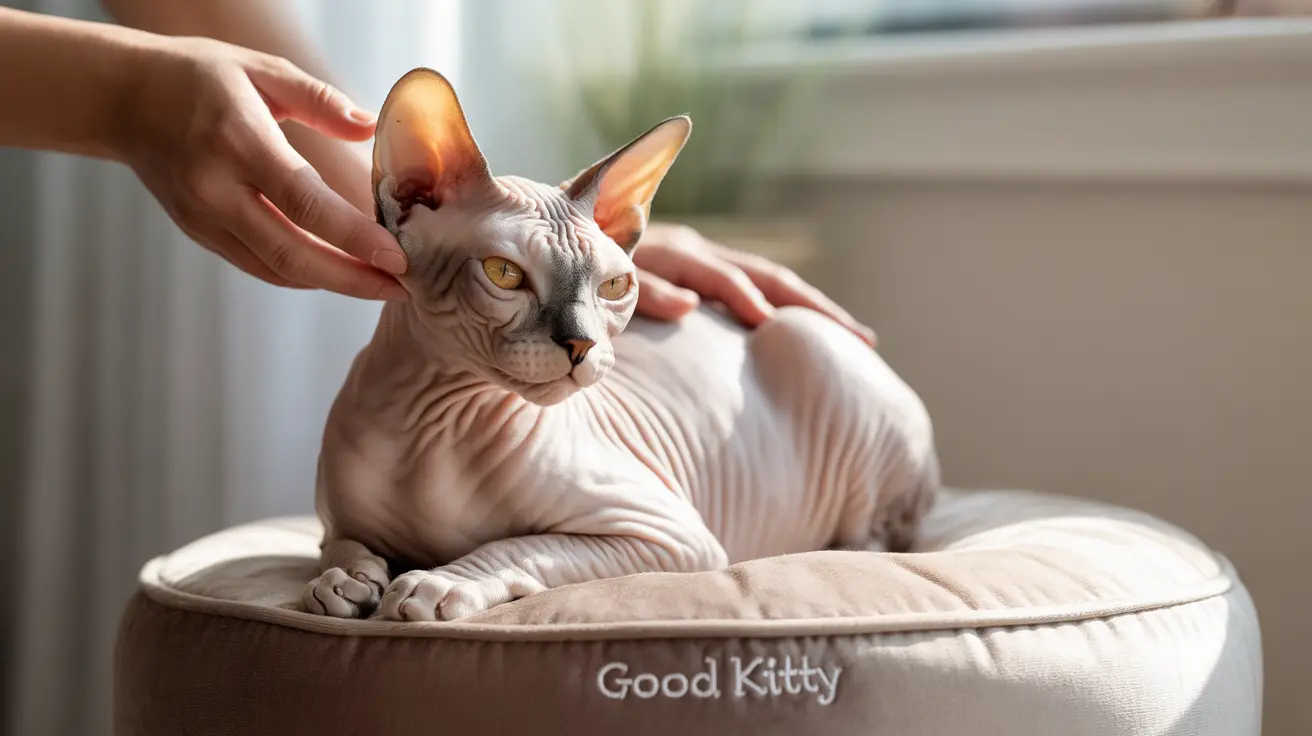The distinctive Sphynx cat, known for its hairless appearance and affectionate personality, has captured the hearts of cat lovers worldwide. However, understanding their lifespan and unique health needs is crucial for providing optimal care. This comprehensive guide explores the Sphynx cat lifespan and essential factors that influence their longevity.
Understanding Sphynx Cat Life Expectancy
Sphynx cats typically live between 8 to 14 years, though some can reach 16 years or beyond with proper care. However, recent studies have shown concerning statistics. A notable UK veterinary study found that Sphynx cats had a significantly lower average lifespan of 6.7 years compared to the general feline population's 11.7 years.
This shorter life expectancy is largely attributed to their unique genetic makeup and predisposition to certain health conditions. As a purebred cat, the Sphynx typically lives about 1.5 years less than mixed-breed cats due to their limited genetic diversity.
Genetic Health Challenges Affecting Longevity
Hypertrophic Cardiomyopathy (HCM)
HCM is the most significant health concern affecting Sphynx cats, with studies showing that 14.5% to 34% of the breed may be affected. This heart condition causes thickening of the heart muscle and can lead to heart failure or sudden death if left unmonitored.
Hereditary Myopathy
Stemming from mutations in the COLQ gene, this condition causes muscle weakness and can affect breathing and eating abilities. Regular veterinary monitoring is essential for cats showing these symptoms.
Essential Care for Maximum Lifespan
Temperature Regulation
Due to their hairless nature, Sphynx cats require special attention to temperature control. Maintain a warm environment and provide cozy bedding to prevent respiratory issues that could impact their health.
Skin Care Requirements
Regular bathing is crucial to remove excess oils and prevent skin infections. Protect your Sphynx from direct sunlight to avoid sunburn and potential skin cancer, which can significantly affect their lifespan.
Preventive Healthcare
Schedule bi-annual veterinary check-ups for early detection of common health issues. Regular heart screenings, dental care, and genetic testing can help identify and manage potential health problems before they become severe.
Diet and Nutrition Impact on Longevity
Sphynx cats have a higher metabolism than most breeds and require a carefully balanced diet. Feed high-quality protein-rich food and consult with your veterinarian about potential dietary supplements to support their unique nutritional needs.
Creating an Optimal Living Environment
These social creatures thrive in interactive environments. Provide mental stimulation through play and companionship to prevent stress-related health issues that could impact their lifespan.
Frequently Asked Questions
What is the typical lifespan of a Sphynx cat compared to other cat breeds?
Sphynx cats typically live 8-14 years, which is shorter than the average domestic cat lifespan of 13-18 years. Recent studies indicate they may have one of the lowest average lifespans among purebred cats at 6.7 years.
How do genetic health issues like hypertrophic cardiomyopathy (HCM) affect a Sphynx cat's lifespan?
HCM affects up to 34% of Sphynx cats and can significantly reduce their lifespan if not monitored and treated. Regular cardiac screenings and early intervention are crucial for managing this condition.
What special care does a Sphynx cat need to live a longer, healthier life?
Sphynx cats require regular bathing, temperature regulation, protection from sun exposure, routine veterinary check-ups, and a specialized diet to maintain optimal health and maximize their lifespan.
How can I identify early signs of common health problems in my Sphynx cat?
Watch for symptoms such as lethargy, difficulty breathing, skin changes, reduced appetite, or unusual heart rhythms. Regular veterinary check-ups can help catch potential issues early.
Are there specific diet and environmental tips to help extend my Sphynx cat's lifespan?
Provide high-quality, protein-rich food appropriate for their high metabolism, maintain a warm environment, ensure regular exercise, and create an enriching living space with plenty of mental stimulation and social interaction.
Understanding and addressing the unique needs of your Sphynx cat can help ensure they live the longest, healthiest life possible. Regular veterinary care, proper nutrition, and attention to their special requirements are key to maximizing their lifespan and quality of life.






